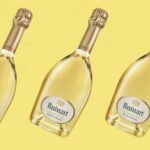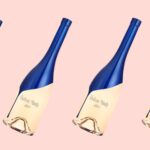The idea of aging wine in the refrigerator may seem practical to many, but it is actually detrimental to the quality of the wine.
This article from the Oeni app (available on iOS and Android) explores in depth the reasons why this practice is inadvisable, and suggests alternatives for optimal aging.
Inappropriate temperature
Domestic refrigerators are generally set between 1 and 4 degrees Celsius, a temperature far too cold for most wines. According to Leonara Varvoutis, general manager and sommelier, this temperature shocks the wine. As a result, the tartaric acid in the wine crystallizes into "wine diamonds", altering the balance and complexity of the flavors. This disruption makes the wine unbalanced, negatively affecting its evolution over time.
Ideally, wine ages at a constant temperature, slightly below room temperature, around 12 to 15 degrees Celsius. Too low a temperature slows down the maturing process, preventing the wine from developing its complex aromas and flavors.
Humidity and condensation
Another consequence of keeping wine in the fridge is excess humidity, which can asphyxiate the cork. This lack of oxygenation prevents the wine from aging properly, or at all. The damp, smothered cork can no longer regulate the passage of air necessary for harmonious maturation. Excessive humidity can also encourage the development of mold, compromising the integrity of the cork and, consequently, the wine.
Compressor vibration
Refrigerators, with their constant vibrations, are also detrimental. Carolyn Lassen, Sommelier at Husk Nashville, explains that these vibrations disrupt the sediment in wines intended for aging, altering their flavor in unpleasant ways. Wines age better when they are still, allowing sediment to settle naturally. Vibrations can also provoke undesirable chemical reactions, altering the structure of the wine.
Exposure to Light
Light, especially UV rays, can degrade wine over time. Domestic refrigerators are not designed to protect against these rays, increasing the risk of deterioration. UV rays can cause premature oxidation, reducing the quality and longevity of the wine.
Atmospheric pressure
An aspect often overlooked is the atmospheric pressure inside the refrigerator, which can also affect the cork and the wine. Fluctuating pressure can cause the cork to contract and expand slightly, promoting uneven air penetration.
Alternating temperatures
Frequent opening of the refrigerator creates temperature variations that are not ideal for wine. Every time the door is opened, the temperature fluctuates, exposing the wine to a cycle of cooling and heating. This alternation can cause thermal fatigue, accelerating wine ageing in an uneven and often harmful way.
Alternatives for Wine Aging
- Side storage: Storing wine bottles on their sides helps to maintain contact between the wine and the cork, thus preventing drying out and the intrusion of unwanted oxygen. This position also helps maintain an even distribution of sediment.
- Cool, dark places: A wine cellar is ideal, but a closet can also do the trick, provided it's cool and dark. The ideal temperature is between 12 and 15 degrees Celsius, with a relative humidity of 60-70%. A basement can often provide the perfect conditions.
- Investing in a wine cellar: For those investing in rare bottles, a temperature- and humidity-controlled wine cellar is essential. These cellars provide an optimal environment for aging, preserving the wine's qualities over the long term. What's more, modern cellars are often equipped with anti-vibration systems and protective UV doors.
- Thermoelectric wine rack: For those who can't afford a wine cellar, a thermoelectric wine rack is a good alternative. It offers a stable temperature without excessive vibration and without the drawbacks of a traditional refrigerator.
- Specialized storage containers: There are also specialized storage containers that can be placed in domestic environments to simulate cellar aging conditions.
Conclusion
In conclusion, although the refrigerator may seem a practical solution for storing wine, it is not suitable for aging. Temperatures that are too low, excessive humidity, vibrations and light can alter the quality and evolution of wine. To ensure that your wine ages in optimal conditions, it's best to invest in a wine cellar or find a cool, dark place to store it. Protecting your precious bottles is well worth it to enjoy superior quality wine in the future.





